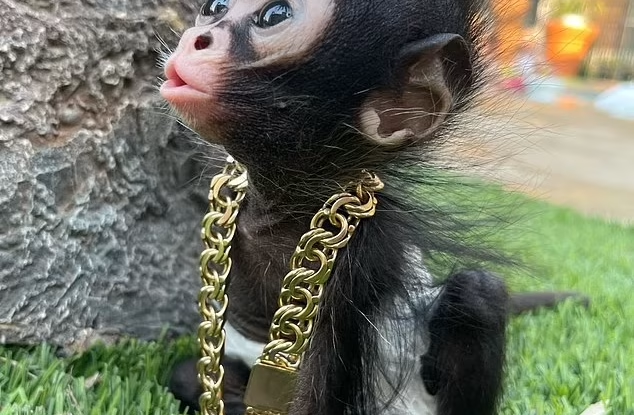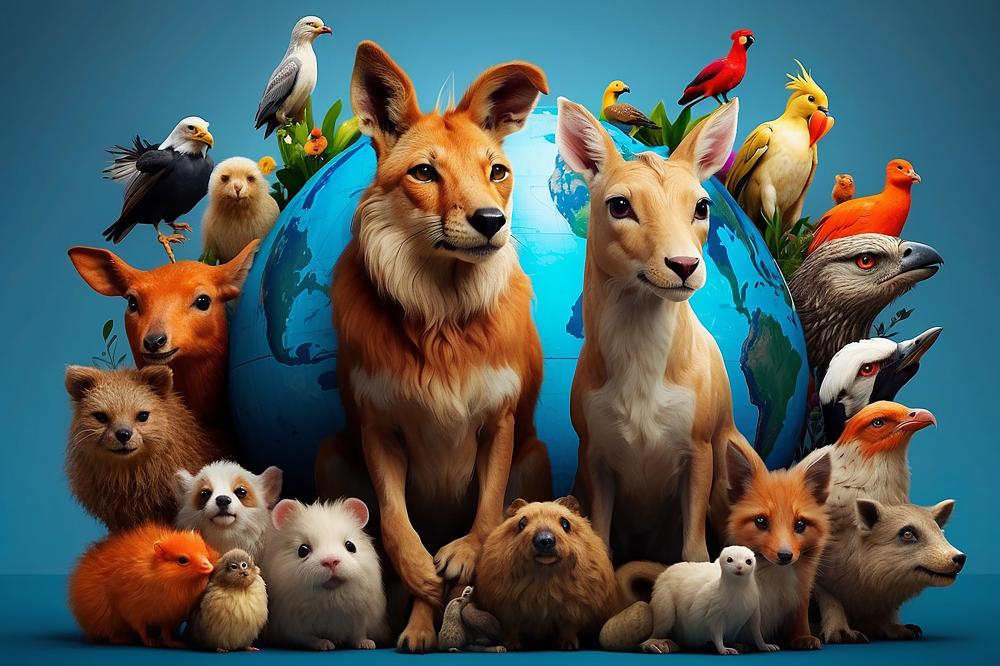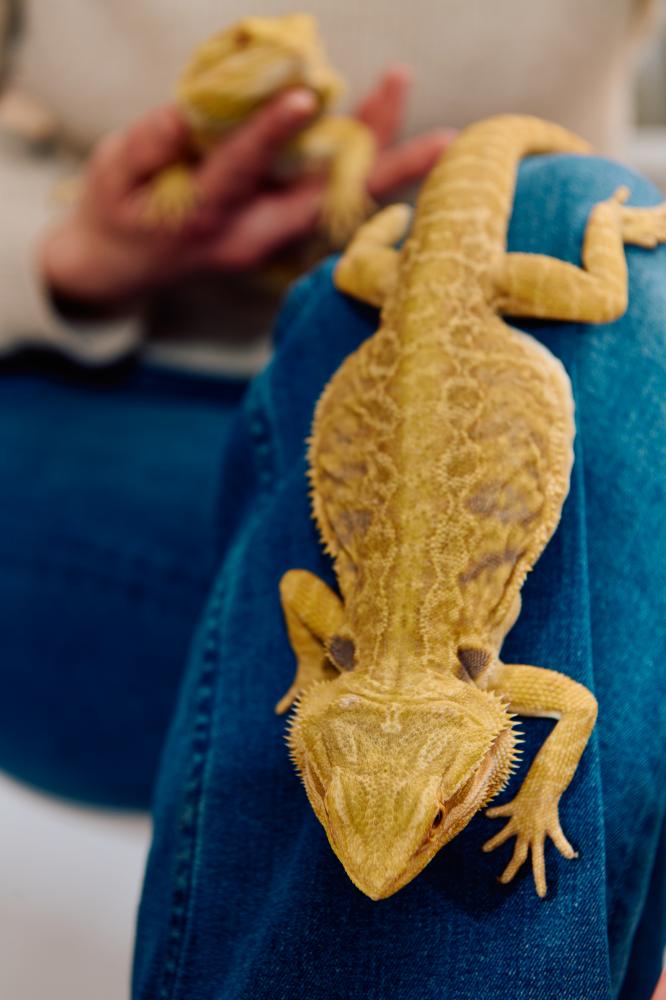Texas Influencer Under Investigation Over Confiscated Spider Monkeys Care
November 22, 2024 by admin
1158
No Comments
Perspectives on Animal Care and Rescue Efforts Legal Implications and Ownership Controversies Challenges Faced by Rescue Organizations Impact on Social...

Perspectives on Animal Care and Rescue Efforts
Legal Implications and Ownership Controversies
Exploring the legal landscape surrounding the Texas influencer under investigation over confiscated spider monkey’s care reveals a tapestry of regulatory complications. Laws in Irving, Texas, clearly prohibit the ownership of wild animals, creating legal repercussions for those who violate these rules. Consequently, this case has attracted significant legal scrutiny, questioning the influencer’s accountability. In many municipalities, there are strict regulations regarding exotic animal ownership. These laws aim to protect both the animals and the community. The influencer’s case illustrates the complexities and potential consequences when these regulations are not adhered to. Potential charges, ranging from misdemeanors to felonies, add another layer of tension for the influencer and the broader community. Ultimately, these legal proceedings will serve as a precedent, impacting future ownership of exotic animals in similar settings. As observers, we continue to monitor the situation, aware of its potential implications for our own practices and advocacy efforts.Challenges Faced by Rescue Organizations
The Texas influencer under investigation over confiscated spider monkey’s care highlights challenges that rescue organizations face. These entities often step in during crises, providing refuge and medical care to animals in distress. At JORGIE, we understand the demands placed on these sanctuaries, from financial constraints to the need for specialized veterinary care. At the heart of these efforts lies a commitment to rehabilitation. For malnourished animals like the monkey in question, this requires extensive treatment plans. Rescue centers must address nutritional deficits, bone health, and socialization to facilitate recovery. The dedication shown by sanctuaries showcases their indispensable role in ensuring animal welfare. The journey to recovery is often long and fraught with challenges. Time and resources are essential, as seen with Funky Monkey Ranch’s rehabilitation efforts. As we continue to engage with our supporters, we emphasize the significance of supporting these organizations.Impact on Social Media and Public Perception
The case of Texas influencer under investigation over confiscated spider monkey’s care has amplified discussions across social media platforms. As an organization engaged heavily in these digital spaces, we have observed the evolving narrative that surrounds such high-profile cases. Public perception plays a pivotal role in shaping outcomes and influencing the influencer’s future. Amidst the controversy, social media has emerged as a platform for advocacy and discourse. Campaigns like #FreeJorgieBoy have gained traction, revealing the power of digital communities to rally around causes. This discourse not only raises awareness but also highlights the emotional connection people have with animals. In this digital age, the influence of social media cannot be underestimated. It shapes public opinion and can drive change. As this story unfolds, it marks a significant intersection between social media influence, legal concerns, and animal welfare advocacy.Role of Community and Support Networks
The unfolding situation of the Texas influencer under investigation over confiscated spider monkey’s care underscores the power of community support. As an organization, we find strength in the networks we have built. These connections are vital in navigating challenges and advocating for change. The community’s involvement can be seen in the collective efforts to ensure the monkey’s well-being. Donations, volunteer work, and moral support from individuals and organizations increase the chances of successful rehabilitation. This collaborative effort is a testament to the compassion and dedication of those committed to animal welfare. Such community-driven initiatives highlight the importance of partnerships. They enable organizations like ours to continue advocating for responsible animal ownership and provide necessary resources for recovery.
Understanding Animal Welfare
Animal welfare focuses on the well-being of non-human animals. It’s a complex issue that encompasses various aspects of animal life. The concept revolves around ensuring animals are treated humanely, whether they are pets, livestock, or wildlife. Good animal welfare practices involve appropriate housing, nutrition, disease prevention, and humane handling. As a passionate advocate for animal welfare, I believe it’s crucial to consider both physical and mental health. Ensuring animals are stress-free is vital. It means adopting practices that reduce fear, distress, and pain. This holistic approach guarantees their overall well-being.Animal Welfare in Different Settings
Addressing animal welfare in various environments is essential. Domestic pets, for instance, require proper care and socialization to thrive. This involves responsible pet ownership and ensuring they have a loving home. On farms, ensuring welfare during housing, transport, and slaughter is critical. For instance, providing enough space for livestock and using humane methods of euthanasia are crucial steps. Wildlife conservation also plays a role in animal welfare. Efforts to protect species from habitat loss and poaching contribute to their survival. Each setting presents unique challenges, but the goal remains the same: to improve animal welfare.Personal Insights and Experiences
My journey with animal welfare began as a child, fostering abandoned pets. This experience shaped my view on the importance of compassion and responsibility. I learned early on that every action counts in enhancing animal lives. Working with various animal organizations further deepened my understanding. I’ve witnessed firsthand how simple changes, like creating engaging habitats for animals, can significantly impact their welfare. Sharing these experiences through online platforms like InstagramInnovative Approaches
Innovation in animal welfare isn’t just about new technologies. It’s about finding creative solutions to existing problems. One method is using enrichment activities to enhance animals’ lives in captivity. This can reduce stress and promote natural behaviors. Additionally, advocating for policy changes is crucial. Encouraging regulations that protect animal welfare can lead to long-term improvements. From supporting bans on harmful practices to promoting sustainable farming methods, every effort counts.The Future of Animal Welfare
The future of animal welfare relies on collective efforts. It involves individuals, communities, and governments working together. As our understanding of animal welfare grows, so does our ability to make a difference. There is an increasing trend towards ethical considerations in consumer choices. People are becoming more aware of the impact their choices have on animal welfare. This shift is encouraging businesses to adopt humane practices. Ultimately, achieving comprehensive animal welfare will take time and dedication. But with continued passion and determination, I am confident we’ll see significant progress. Our commitment to this vital cause will guide us toward a better future for all animals.Understanding the Appeal
The allure of exotic pet ownership captivates many. This fascination may stem from the desire for a unique companion that stands out from traditional pets. At JORGIE, we’ve noticed the excitement that surrounds this kind of pet ownership. People are intrigued by the idea of having a rare or unusual animal as part of their lives. Exotic pets, ranging from snakes to sugar gliders, offer a different kind of bonding experience. Unlike cats or dogs, these animals often require a special kind of care. This adds an element of adventure for those willing to take on the challenge. The notion of nurturing an exotic animal can be truly fulfilling for passionate pet owners.Legal and Ethical Considerations
Before diving into exotic pet ownership, understanding legal requirements is crucial. Regulations vary by region. Certain animals are strictly prohibited in some areas, while others may require special permits. It’s essential to research and comply with local regulations to avoid legal issues. Ethically, the responsibility of maintaining an exotic pet’s wellbeing cannot be ignored. These animals have specific needs that differ vastly from more common pets. Providing proper nutrition, care, and habitat is necessary for their health and happiness. At JORGIE, we advocate for adopting pets ethically and ensuring their welfare is a priority.Choosing the Right Exotic Companion
Selecting the right exotic pet depends largely on your lifestyle and resources. Some animals demand more space, time, and money than others. For instance, while a rabbit may seem low-maintenance, its care can be complex, involving specific dietary and environmental needs. Our advice at JORGIE is to thoroughly research the species you’re interested in. Consider the availability of veterinary care for your potential pet. Many veterinarians may not be equipped to treat exotic species. Establishing a relationship with a qualified exotic animal veterinarian can prevent future health mishaps. It ensures your pet receives the specialized care it requires.The Hidden Challenges of Exotic Pets
Exotic pet ownership is not without its challenges. These pets are often adept at concealing illness, making regular health check-ups critical. The cost and availability of specialized veterinary care can add complexity to pet ownership. Exotic animals may have specific behaviors or needs that require an informed and patient owner. Due to their non-domestic nature, exotic animals sometimes exhibit unpredictable behavior. As a result, their handlers must be well-prepared and educated. Safety for both the pet and the owner is paramount. Ensuring proper handling and understanding of the pet’s behavior will create a harmonious living environment.The Responsible Path Forward
For those committed to exotic pet ownership, taking a responsible approach is key. Education is the first step. Read extensively, consult experts, and engage with experienced owners. Each species has unique traits and needs that must be met for their wellbeing. At JORGIE, we always emphasize the importance of continuous learning. Consider adopting from reputable rescues or shelters rather than purchasing from exotic pet shops. Many animals in need of homes can be found through rescue organizations, which often provide ongoing support and information. By choosing adoption, you contribute to a more ethical and sustainable exotic pet community.
Why are spider monkeys being hunted?
Spider monkeys are often hunted for several reasons, predominantly driven by human activities. In many regions, they’re targeted for their meat, which is considered a delicacy in certain cultures. Additionally, the illegal pet trade poses a significant threat, with people seeking exotic pets like spider monkeys due to their unique appearance and behaviors. Habitat destruction also plays a role, as deforestation and urban expansion lead to reduced living spaces, making these animals more vulnerable to hunters. It’s crucial to raise awareness about the impact of these activities and support conservation efforts to protect these remarkable primates. Have you ever considered how your lifestyle choices might impact wildlife conservation?Is it illegal to own a spider monkey in Texas?
Yes, it is illegal to own a spider monkey in Texas. The state’s laws clearly prohibit the ownership of wild animals like spider monkeys to ensure the safety of both the animals and the community. Texas has stringent regulations regarding exotic animal ownership, and violating these rules can lead to serious legal consequences, including fines and even criminal charges. For those interested in exotic pets, it’s essential to research and comply with local laws to avoid potential legal issues and contribute to the welfare and safety of the animals. How do you think regulations affect people’s interest in owning exotic pets?What happened to the spider monkey?
The case involving the Texas influencer sheds light on the challenges of owning such exotic animals. The spider monkey in question was reportedly confiscated due to concerns about its care, leading to an investigation by local authorities. This situation highlights the responsibilities and complexities associated with exotic pet ownership. As the monkey undergoes rehabilitation, it’s a poignant reminder of the necessity for proper care and the importance of animal sanctuaries and rescue centers like those we at JORGIE support. These organizations play a critical role in providing specialized care for rescued animals. What are your thoughts on the role of rescue organizations in such situations?What threatens a spider monkey?
Spider monkeys face a multitude of threats, with habitat loss being one of the primary dangers. Deforestation for agriculture, logging, and urban development encroaches on their natural environments, drastically reducing their living spaces. Additionally, they are susceptible to hunting and the illegal wildlife trade, driven by demand for bushmeat and exotic pets. Climate change also poses long-term threats, impacting their food sources and altering their habitats. Protecting spider monkeys requires concerted conservation efforts, enforced regulations, and public awareness to address these issues. How do you think individuals can contribute to the conservation of spider monkeys and their habitats?Reputable Resources
- U.S. Fish and Wildlife Service: This government agency provides comprehensive information on wildlife conservation efforts and the protection of endangered species, including spider monkeys.
- World Wildlife Fund (WWF): The WWF is a leading organization in wildlife conservation and endangered species protection, offering resources on habitat preservation and anti-poaching initiatives.
- The Humane Society of the United States: This organization focuses on the humane treatment of animals and provides resources related to preventing animal cruelty, including issues surrounding exotic pet ownership.
- American Society for the Prevention of Cruelty to Animals (ASPCA): The ASPCA works to prevent cruelty to animals through advocacy, education, and rescue operations, offering insights into the responsibilities of exotic pet ownership.
- International Union for Conservation of Nature (IUCN): The IUCN offers valuable data on species conservation status and efforts to protect biodiversity, including challenges faced by species like spider monkeys.
- National Geographic Society: Provides educational resources and articles on wildlife conservation, highlighting the threats faced by animals like spider monkeys due to habitat loss and illegal trade.











